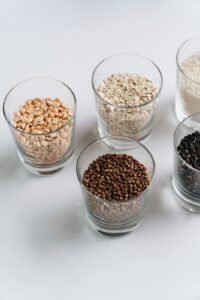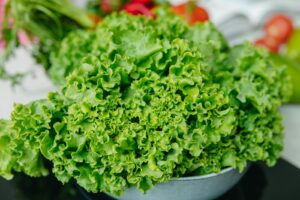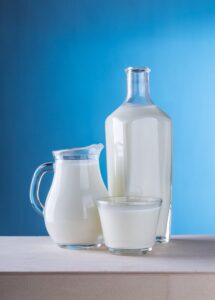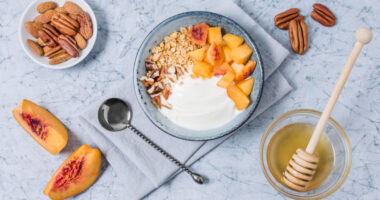Women’s health needs are unique and require attention to essential vitamins that support overall well-being, hormonal balance, reproductive health, and vitality. In this blog, we’ll explore the key vitamins that are crucial for women’s health, their benefits, dietary sources, and considerations for optimal supplementation.
1. Vitamin D
Vitamin D plays a vital role in bone health, immune function, mood regulation, and hormonal balance. It helps the body absorb calcium and phosphorus, essential minerals for strong bones.
Benefits for Women
Promotes bone density and lowers the risk of osteoporosis.
Enhances immune system function.
Helps regulate mood and may lower the risk of depression.
Plays a role in reproductive health and fertility.
Dietary Sources
Fatty fish (salmon, mackerel, tuna)
Fortified dairy products (milk, yoghurt)
Eggs
Sun exposure (limited time without sunscreen)
Considerations:
Consult with a healthcare provider to determine if vitamin D supplementation is necessary, especially for individuals with limited sun exposure or specific health conditions.

2. Vitamin B Complex
The B vitamins, including B1 (thiamine), B2 (riboflavin), B3 (niacin), B5 (pantothenic acid), B6 (pyridoxine), B7 (biotin), B9 (folate), and B12 (cobalamin), are essential for energy production, metabolism, nerve function, and red blood cell formation.
Benefits for Women
Supports energy production and reduces fatigue.
Promotes healthy skin, hair, and nails.
Supports brain health and cognitive function.
Helps regulate hormonal balance.
Dietary Sources
Whole grains (brown rice, quinoa, oats)
Leafy greens (spinach, kale, broccoli)
Eggs
Lean meats (chicken, turkey, fish)
Legumes (beans, lentils)
Considerations:
Ensure adequate intake of all B vitamins through a balanced diet or multivitamin supplement designed for women’s health.

3. Vitamin C
Vitamin C is a powerful antioxidant that supports immune function, collagen production, skin health, and wound healing. This also improves the body’s ability to absorb iron from plant-based sources.
Benefits for Women
Boosts immune system function, which reduces the risk of infections.
Supports collagen synthesis for healthy skin and connective tissues.
Functions as a powerful antioxidant, safeguarding cells against oxidative stress.
May improve iron absorption, especially for vegetarian or vegan women.
Dietary Sources
Citrus fruits (oranges, grapefruits, lemons)
Berries (strawberries, blueberries, raspberries)
Kiwi
Bell peppers (red, yellow, green)
Broccoli
Tomatoes
Considerations:
Consume vitamin C-rich foods regularly to maintain optimal levels, especially during periods of increased stress or immune challenges.

4. Vitamin E
Vitamin E is an antioxidant that protects cells from oxidative damage, supports skin health, and may have anti-inflammatory properties. It also plays a role in hormonal balance and reproductive health.
Benefits for Women
Defends your skin against UV damage and premature ageing.
Supports heart health and circulation.
May reduce menstrual cramps and PMS symptoms.
Supports fertility and reproductive function.
Dietary Sources
Nuts and seeds (almonds, sunflower seeds, hazelnuts)
Vegetable oils (olive oil, sunflower oil, safflower oil)
Leafy greens (spinach, Swiss chard)
Avocado
Considerations
Incorporate vitamin E-rich foods into your diet to support overall health and well-being, especially for skin and hormonal balance.

5. Vitamin A
Vitamin A is essential for vision, immune function, skin health, and cell growth. It also plays a crucial role in maintaining reproductive health and supporting fetal development throughout pregnancy.
Benefits for Women
Supports healthy vision and night vision.
Enhances immune system function.
Promotes skin health and collagen production.
Supports reproductive health and fertility.
Dietary Sources
Liver (beef, chicken, pork)
Fish (salmon, mackerel, trout)
Dairy products (milk, cheese, yoghurt)
Eggs
Orange and yellow fruits and vegetables such as carrots, sweet potatoes, and mangoes.
Leafy greens (spinach, kale)
Considerations
Balance vitamin A intake from food sources, as excessive intake from supplements can be harmful, especially during pregnancy.

6. Iron
Iron plays a critical role in producing haemoglobin, the molecule responsible for carrying oxygen within red blood cells. Iron deficiency can lead to anaemia, fatigue, weakness, and impaired immune function.
Benefits for Women
Prevents iron deficiency anemia and fatigue.
Supports oxygen transport and energy production.
Essential for reproductive health and menstruation.
Supports immune system function.
Dietary Sources
Lean meats (beef, chicken, turkey)
Seafood (oysters, clams, mussels)
Beans and legumes (lentils, chickpeas, kidney beans)
Dark leafy greens (spinach, kale)
Fortified cereals and grains
Considerations
Include iron-rich foods in your diet, especially if you have heavy menstrual periods, are pregnant, or follow a vegetarian or vegan diet.
Pair iron-rich foods with vitamin C-rich foods to boost the absorption of iron.

7. Calcium
Calcium is vital for maintaining strong bones, supporting muscle function, facilitating nerve transmission, and promoting healthy blood clotting. It also plays a role in hormone regulation and may reduce the risk of osteoporosis.
Benefits for Women
Supports bone density and prevents osteoporosis.
Essential for muscle and nerve function.
Supports heart health and blood clotting.
Regulates hormone levels during menstrual cycles.
Dietary Sources
Dairy products (milk, cheese, yoghurt)
Fortified plant-based milk (soy milk, almond milk)
Leafy greens (collard greens, bok choy, broccoli)
Tofu
Fortified cereals and juices
Considerations
Aim to meet daily calcium requirements through diet or supplementation, especially during adolescence, pregnancy, and menopause.
Combine calcium-rich foods with vitamin D for optimal absorption.

8. Omega-3 Fatty Acids
Omega-3 fatty acids, including EPA (eicosapentaenoic acid) and DHA (docosahexaenoic acid), are essential for heart health, brain function, inflammation regulation, and hormone balance.
Benefits for Women
Promotes heart health and lowers the likelihood of cardiovascular disease.
Enhances brain function, cognitive performance, and mood regulation.
Reduces inflammation and may alleviate menstrual pain.
Supports healthy skin, hair, and nails.
Dietary Sources
Fatty fish (salmon, mackerel, sardines)
Flaxseeds and chia seeds
Walnuts
Hemp seeds
Algal oil (for vegetarians and vegans)
Considerations
Include omega-3-rich foods in your diet regularly, or consider a high-quality fish oil or algal oil supplement for adequate intake.

9. Zinc
Zinc is essential for immune function, wound healing, cell division, and DNA synthesis.









